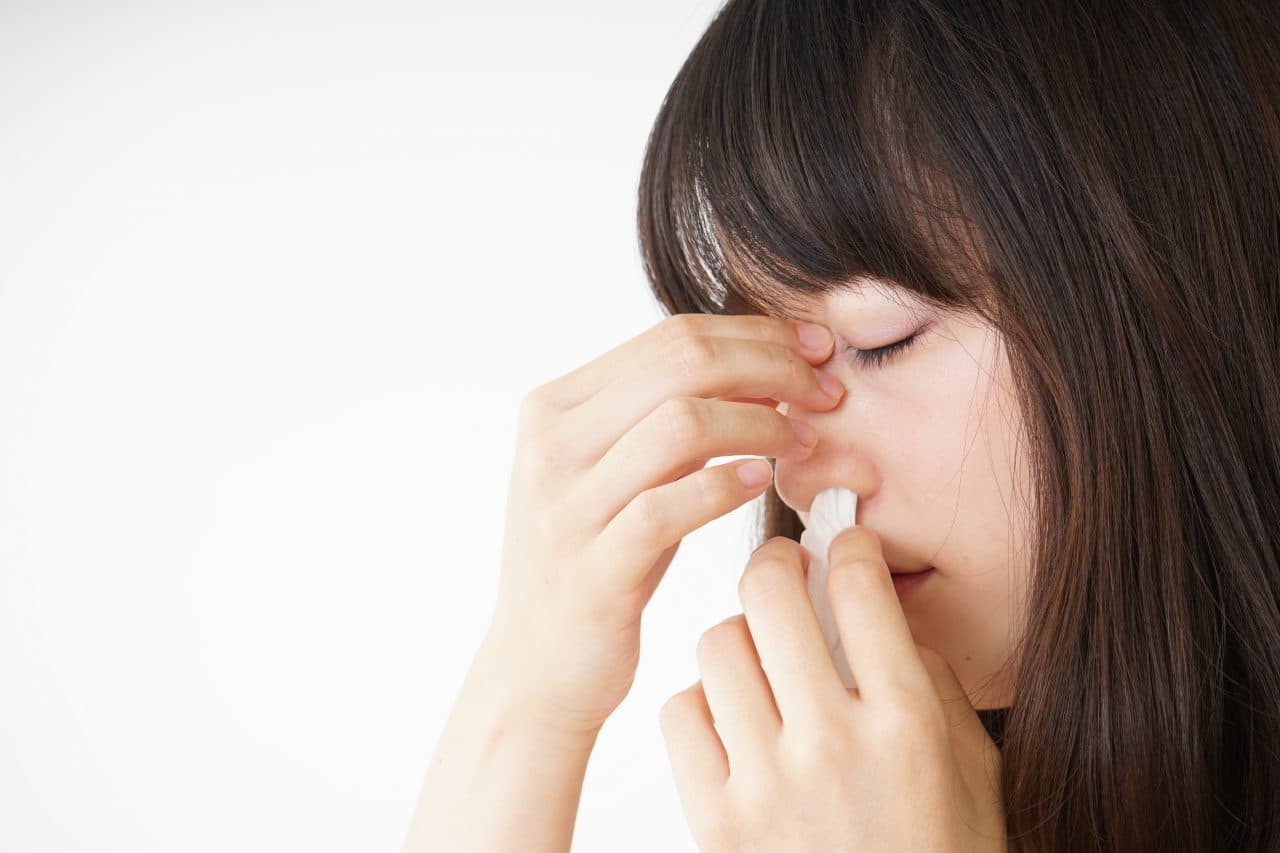If you do get a nosebleed, it’s important to stay calm. Sit down and lean forward slightly while pinching your nostrils together using a thumb and index finger. Hold this position for at least five minutes, or until the bleeding has stopped. In the vast majority of cases, this should be enough to treat the problem.
However, it’s estimated that about 10% of nose bleeds are severe enough to require treatment or medical attention.
Anterior vs Posterior Nosebleeds

There are two types of nosebleeds: anterior and posterior. An anterior nosebleed occurs when the blood vessels in the front of the nose break and bleed, and posterior is when it affects the vessels in the back part of the nose. While anterior nosebleeds are much more common, posterior nosebleeds are more serious and may require medical attention because blood can leak into the back of your throat.
Causes of Nosebleeds
The cause of nosebleeds can also range from minor issues to serious health problems. They include:
- Nasal allergies
- Dry or irritated nose
- Picking nose or blowing nose too hard
- Foreign object stuck in nose
- Trauma from a blow to the head or other injury
- Bleeding disorders
- Extremely high blood pressure
- Taking blood thinners
- Certain genetic conditions
- Vascular malformations
- Head and neck cancer
When to See a Doctor
In most cases, you will not need a doctor to treat your nosebleed. However, seek immediate medical care if you experience any of the following:
- Your nosebleed lasts longer than 30 minutes
- The bleeding is unusually heavy
- You feel dizzy or weak
- It was caused by a blow to the head
- You are swallowing a lot of blood
- You are having difficulty breathing
- You take medication or have a medical condition that prevents you from clotting properly
Similarly, you may want to let your doctor know if you have a history of serious nose bleeds, or you’ve had multiple nosebleeds accompanied by headaches.
Medical Treatments
In cases where medical intervention is needed, there are several possible treatments and prevention methods to avoid future serious bleeds.
- Nasal packing which involves inserting a gauze-like material into the nose to help stop the bleeding and absorb excess blood.
- Nasal sprays that can constrict the blood vessels in the nose.
- If your nose bleeds are caused by medication, your doctor may recommend a different prescription or dosage.
- Cauterizing the area of bleeding with a chemical swab or an electrical device.
- In some cases, surgery that involves tying off or blocking a blood vessel may be required.
At Home Prevention
There are also a few steps you can take at home to reduce your risk of nosebleeds.
- Use a humidifier or nasal spray to avoid dryness
- Blow your nose gently when you have allergies or a cold
- If your nose bleeds are caused by allergies, take medication and avoid triggers. This may mean taking an antihistamine before going to Amerson River Park, or avoiding going out when pollen levels are high.
For more information or to schedule an appointment, call the The ENT Center of Central Georgia today.
